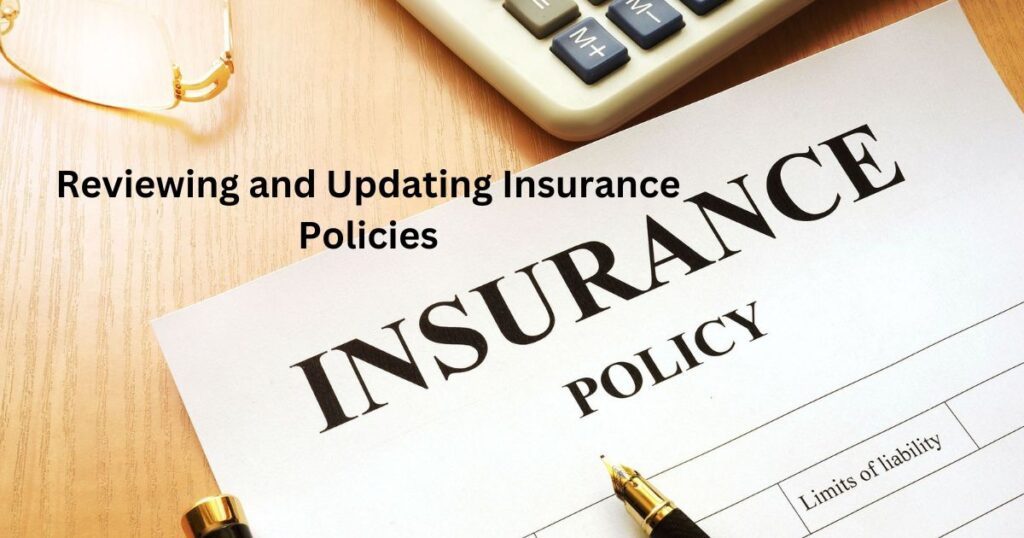In the dynamic landscape of the Levant region, where businesses thrive amidst cultural diversity and economic vibrancy, having a robust insurance strategy is crucial. Business insurance, often overlooked or misunderstood, plays a pivotal role in safeguarding enterprises from unforeseen risks and uncertainties.
This comprehensive guide aims to demystify the complexities of business insurance in the Levant, providing valuable insights and actionable advice for businesses of all sizes and sectors.
Understand the Business Insurance in Levantam
Understanding The Importance of Business Insurance
Business insurance serves as a safety net, protecting companies from financial losses due to various risks such as property damage, liability claims, business interruption, and more. In the Levant, where geopolitical factors and economic fluctuations can impact businesses, having the right insurance coverage is non-negotiable.
It provides peace of mind to business owners and enables them to focus on growth and innovation without constantly worrying about potential setbacks.
How Can You Protect Your Business With Insurance in Levantam

To protect your business insurance in the Levant, consider the following strategies:
- Comprehensive Coverage: Ensure that your insurance policy provides comprehensive coverage tailored to your business’s specific risks and needs. This may include property insurance, liability coverage, business interruption insurance, and other relevant protections.
- Regular Reviews: Regularly review your insurance policies to ensure they accurately reflect your current business operations, assets, and risk exposures. Update your coverage as needed to account for changes such as expansions, acquisitions, or new products/services.
- Risk Management Practices: Implement proactive risk management practices to minimize potential risks and losses. This may include safety protocols, cybersecurity measures, employee training, and disaster preparedness plans.
- Compliance: Stay informed about local insurance regulations and compliance requirements in the Levant region. Ensure that your insurance policies comply with legal standards and regulations to avoid any issues during claims processing.
- Professional Guidance: Consider working with experienced insurance advisors or brokers who specialize in the Levant region. They can help you navigate the complexities of business insurance, identify potential risks, and recommend appropriate coverage solutions.
- Claims Management: In the event of a claim, promptly notify your insurance provider and follow the claims handling process outlined in your policy. Keep thorough documentation and communication records to support your claim and expedite the resolution process.
By taking a proactive approach to business insurance protection in the Levant, you can mitigate risks, ensure financial resilience, and safeguard your business against unforeseen challenges.
Types of Business Insurance
a. Property Insurance: This type of insurance covers physical assets such as buildings, equipment, and inventory against perils like fire, theft, vandalism, and natural disasters. In the Levant, where the risk of political unrest or civil disturbances exists, property insurance becomes particularly important for businesses operating in sensitive areas.
b. Liability Insurance: Liability insurance protects businesses from legal claims and financial liabilities arising from third-party injuries, property damage, or advertising mistakes. It includes general liability, professional liability (errors and omissions), product liability, and cyber liability insurance, each tailored to specific risk exposures faced by businesses in the Levant.
c. Business Interruption Insurance: In the event of a covered loss that disrupts business operations, business interruption insurance provides financial support for ongoing expenses and lost revenue. This type of insurance is essential in the Levant, where unexpected events such as political unrest or natural disasters can cause significant business disruptions.
d. Workers’ Compensation Insurance: Mandatory in many Levant countries, workers’ compensation insurance covers medical expenses and lost wages for employees injured or disabled on the job. It also protects businesses from lawsuits related to workplace injuries, promoting a safer work environment and compliance with local regulations.
e. Commercial Auto Insurance: For businesses that rely on vehicles for operations, commercial auto insurance covers accidents, vehicle damage, and liability claims involving company-owned or leased vehicles. This insurance is vital in the Levant, where transportation infrastructure and road conditions may pose risks to businesses.
Factors Influencing Business Insurance in the Levant
a. Geopolitical Stability: The Levant region’s geopolitical landscape can impact insurance requirements and premiums. Businesses operating in politically unstable areas may face higher insurance costs due to increased risks of civil unrest, terrorism, or war-related events.
b. Economic Conditions: Economic fluctuations, currency devaluation, and inflation can affect insurance pricing and coverage availability in the Levant. Businesses need to monitor economic trends and adjust their insurance strategies accordingly to mitigate financial risks.
c. Regulatory Environment: Compliance with local insurance regulations and licensing requirements is essential for businesses in the Levant. Insurance policies must align with regulatory standards to ensure validity and claims eligibility.
d. Industry-Specific Risks: Different industries face unique risks and exposures that require tailored insurance solutions. For example, construction companies may need contractor’s all-risk insurance, while healthcare providers may require medical malpractice coverage.
Choosing the Right Insurance Provider

Selecting a reputable and experienced insurance provider is crucial for businesses in the Levant. Consider the following factors when choosing an insurance partner:
a. Financial Stability: Ensure that the insurance company is financially stable and capable of meeting its obligations in case of claims.
b. Coverage Options: Look for comprehensive coverage options that address your specific business risks and comply with local regulations.
c. Claims Handling Process: Evaluate the insurer’s claims handling process, including response time, transparency, and customer support.
d. Risk Management Services: Some insurers offer risk management services such as safety training, loss prevention, and disaster preparedness, which can add value to your insurance package.
e. Reputation and Reviews: Research the insurer’s reputation, customer reviews, and industry ratings to gauge their reliability and customer satisfaction levels.
Risk Management Strategies
In addition to insurance coverage, businesses in the Levant should implement proactive risk management strategies to minimize exposure to potential risks. These strategies may include:
a. Business Continuity Planning: Develop a robust business continuity plan that outlines procedures for handling emergencies, disasters, and business interruptions.
b. Safety Protocols: Implement safety protocols, training programs, and risk mitigation measures to prevent accidents, injuries, and property damage.
c. Cybersecurity Measures: As cyber threats continue to evolve, invest in cybersecurity measures such as firewalls, encryption, and employee awareness training to protect sensitive data and systems.
d. Legal Compliance: Stay updated with local laws, regulations, and compliance requirements related to insurance, safety standards, and environmental practices.
Reviewing and Updating Insurance Policies

Regularly review and update your insurance policies to ensure they reflect your current business operations, assets, and risks. Changes such as expansions, acquisitions, new products or services, or regulatory updates may necessitate adjustments to your insurance coverage.
Conclusion
Business insurance is a strategic investment that empowers businesses in the Levant to navigate challenges, seize opportunities, and safeguard their long-term sustainability.
By understanding the types of insurance available, factors influencing insurance in the region, and best practices for risk management, businesses can make informed decisions and protect their assets, employees, and reputation effectively.
Partnering with a reliable insurance provider and adopting proactive risk management strategies are key pillars of a resilient and thriving business ecosystem in the Levant.
